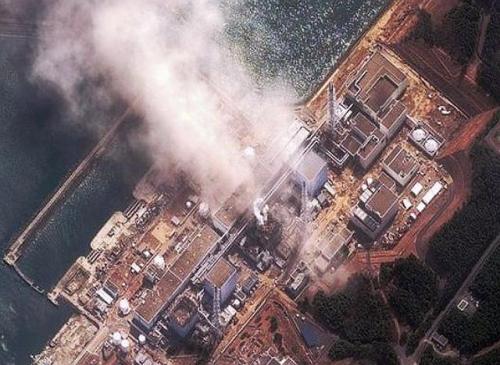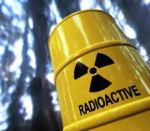With Japan teetering on the edge of a nuclear catastrophe potentially many times worse than Chernobyl, its government incapable of interacting candidly with its
own people and the Tokyo Electric Power Company (TEPCO), which owns and runs the Fukushima reactor, a case study in Keystone Cop-like incompetence, many are looking to America for guidance and help and in particular to President Barack Obama for a lead.
As the Japanese nuclear crisis faces its second week, Obama has announced a comprehensive safety review at all 104 reactors in the US. But just what is the track record of America’s 44th president in dealing with nuclear safety issues and the nuclear industry; how resolute will he be in the face of industry lobbying? It would be re-assuring to be able to say that in this case at least, the soaring rhetoric has been matched by action. But sadly, the answer is that it provides yet another metaphor for the Obama presidency and style of politics – he can talk the talk like no other politician in the hemisphere; the problem begins and stays with the walking part.
Obama’s connections to the nuclear industry surfaced briefly during the battle for the Democratic nomination with Hillary Clinton in the Spring of 2008 and then promptly disappeared. This was a pity because the story really told us all that we needed to know and have come to know about Obama in the White House, which is that what he says he will do when he is searching for votes and what he actually does do once he has got them are often two very different things. It also told us that, despite his campaign slogan of ‘Change’, Obama was no different from any other American politician; his vote could be bought and sold like a pig at market.
The story began on December 1st, 2005 when Exelon, an Illinois-based utility company and America’s largest single producer of nuclear energy (20% of all nuclear-generated electrical power) disclosed that traces of tritium, a radioactive byproduct of nuclear reactors, had been discovered in the water table at its Braidwood plant, some fifty miles southwest of Chicago. Within days tritium was found in wells nearby that provide drinking water to locals and Exelon admitted that the radioactive element had been present in millions of gallons of water that had leaked from the plant years before but the leakage had not been reported.
Now tritium, while a radioactive element, is not the most dangerous substance than can be released from a nuclear reactor. Unlike say Uranium 235 or Plutonium, being in the presence of tritium is not inherently dangerous – those old-fashioned watches with faces that glowed in the dark did so because tritium was painted on the numerals – and it is only when it is ingested in food or liquid that it can do harm. Clearly a lot of tritium had been released from Exelon’s plant and how much harm it may have done was an unanswered question compounded by the alarming realisation locally that other far more dangerous substances may have been released without anyone’s knowledge, except of course Exelon’s.
As Joseph Cosgrove who lived and worked in the nearby hamlet of Godley, Ill, told the Los Angeles Times in 2008: “We want people to be notified. Think about
it. They had releases and no one was told. How would you like to turn on the tap and (have to) think, ‘Should I drink this?’”
Cue the arrival of a white knight in the genial form of Illinois’ newest Senator, Barack Obama, elected just a year or so before the tritium leakage was disclosed and, since his electrifying keynote speech at the 2004 Democratic Convention, a rising star in the Democratic party and already touted by some as a future White House runner.
The existing law governing radioactive discharges from nuclear plants stipulated a requirement on the owners’ part to report leakages to state and local authorities only if they amounted to an “emergency”. So Senator Obama proposed a new law, called the Nuclear Release Notice Act of 2006, which stipulated that nuclear plants “shall immediately” notify officials at local, state and federal level of any accidental release of radioactive material that exceeded “allowable limits for normal operation”.
To objections from the nuclear industry that tritium posed not such a great health threat, Obama responded, according to the New York Times:
“This legislation is not about whether tritium is safe, or at what concentration or level it poses a threat. This legislation is about ensuring that nearby residents know whether they may have been exposed to any level of radiation generated at a nuclear power plant as a result of an unplanned, accidental or unintentional incident.”
It looked as though Senator Obama was going to do the rare thing in American politics, take a stand on behalf of ordinary people even if that was at the expense of corporate interests. Until that is the nuclear industry started cozying up to the Democrats. By 2006/2007, George W Bush’s unpopularity was at its peak and it was clear that any Republican candidate running for the White House in 2008 would likely take the blame for Bush’s follies and lose badly.
Traditionally, the nuclear lobby had always donated most heavily to the GOP but from 2006 onwards, as the result of the 2008 presidential race became more predictable, nuclear’s money went Democratic. When the race got underway the Los Angeles Times estimated that for every dollar that the nuclear industry gave to Republicans, it donated $3.50 to Democrats.
In the case of one of the leading Democratic contenders, Barack Obama, the nuclear industry’s bet paid off handsomely. Exelon and the nuclear lobby, the Nuclear Energy Institute, opposed Obama’s Bill and within a few months their lobbying helped gut the legislation.
Out went that requirement to “immediately” notify the authorities of any nuclear leakage and in its place the Nuclear Regulatory Commission was asked to “consider” public notification in the light of the findings of a special task force set up to examine the tritium discharges. Predictably, that task force reported that “existing reporting requirements for abnormal spills and leaks are at a level that is risk-informed and appropriate”. The Obama Bill was also re-written – the words apparently chosen by Exelon – to make it clear that State and local authorities would not be able to exercise regulatory oversight of nuclear reactors.
The one concession made by the nuclear industry was agreement that plants would “voluntarily” report leakages from now on. But as David Lochbaum of the Union of Concerned Scientists told the New York Times: “…because it is all voluntary who’s to say where things will be in a few years from now?”
Joe Cosgrove, who had campaigned for Obama’s Bill, now complained in the media that the Illinois Senator was bending to the pressure: “Senator Obama’s staff was sending us copies of the Bill to review, and we could see it weakening with each successive draft. The teeth were just taken out of it”.
So why did Barack Obama water down his Bill and allow the nuclear industry to remove its heart and soul? Answer: they gave him lots of money.
Since 2003, when Obama started his run for the US Senate, Exelon employees and bosses had, by February 2008, contributed $227,000 to his Senate and White House bids. That’s a New York Times’ estimate. The Los Angeles Times claimed that $190,000 of that sum was for Obama’s White House campaign. Two of Exelon’s top executives, Frank M Clark, executive vice-president, and John W Rogers, a director, raised funds for Obama while John W Rowe, the chairman of both Exelon and the lobbying group, the Nuclear Energy Institute, was also a donor to his campaign. In addition, Obama’s key aide and adviser, David Axelrod had also worked as a consultant for Exelon.
In the event neither Exelon nor the nuclear industry need have worried. Although Obama had re-written and watered down his Bill, the Senate, which remained under GOP control in 2006, still found reason to object and stalled it. Obama re-introduced the legislation in 2007 but it went nowhere.
This did not stop Obama from claiming just the opposite. On the campaign trail in the winter of 2007/2008, he boasted about the Bill, telling voters in the Iowa primary that it was “the only legislation that I’ve passed. I just did that last year.” Not true but Obama’s claim went largely unchallenged. His main opponent, Hillary Clinton was in no position to exploit the slip, if such it was. Obama was the number one recipient of nuclear cash but Hillary came a close second.
Obama’s promise to the voters of Illinois went the same way as his presidential campaign pledges to, inter alia, offer a public option in health reform, to protect whistleblowers from prosecution, march alongside union members if their collective bargaining rights were threatened, end the Bush tax cuts to the rich and close down Guantanamo prison camp – abandoned in the face of powerful or wealthy opposition.
His current energy proposals include a $36 billion subsidy to the nuclear industry so it can build more reactors. When the policy was drawn up nuclear power looked preferable to oil and carbon-based fuels as a source for energy. The disaster in Japan is a timely reminder that nuclear energy is every bit as unappealing as conventional sources and that a major re-assessment of the Obama energy plan is now imperative. But in the light of the president’s interaction with Exelon, it might not be prudent to bet the mortgage that this will happen.







Love this blog. My find o the week!
I wonder what will happen to the US. It’s like a fine tree that is slowly being strangled by the ivy of corruption.
http://www.nybooks.com/blogs/nyrblog/2011/mar/10/new-american-pessimism/#
“By the president’s calculation, telling the truth to the American people would doom his reelection campaign, since he would not be able to raise the billion dollars he needs this time around. The kind of people who have that kind of money and will agree to contribute to his campaign know very well what informed voters in a working democracy would to do to them once they understood just who has depleted the national treasury to line their own pockets. No doubt, he and his political party will do anything to avoid the truth and will propose outwardly attractive solutions—like the health care bill that not only expands coverage but greatly benefits insurance companies and does little to reduce healthcare costs.”
SUCH A SHAME, PLANET EARTH SEEMED LIKE A GOOD PLACE TO BE.
BEAM ME UP SCOTTIE.
Of every politician with his hand out for campaign money in the United States of America, Barack Obama got the most money from BP. Fortunately for BP, who went from having had to pay millions in fines and criminal and civil judgments under the Bush Administration to getting eight safety awards from the Obama administration – until the Deepwater Horizon disaster in the Gulf of Mexico showed just what an Obama safety award is worth. Barack Obama was also successfully purchased by Wall Street just in time for Wall Street not to have to answer very many questions before a Democratic Party-controlled Congress. The main change between Obama and the Bush administration is the sheer, orders of magnitude increase in bribes, er, “campaign contributions” paid.